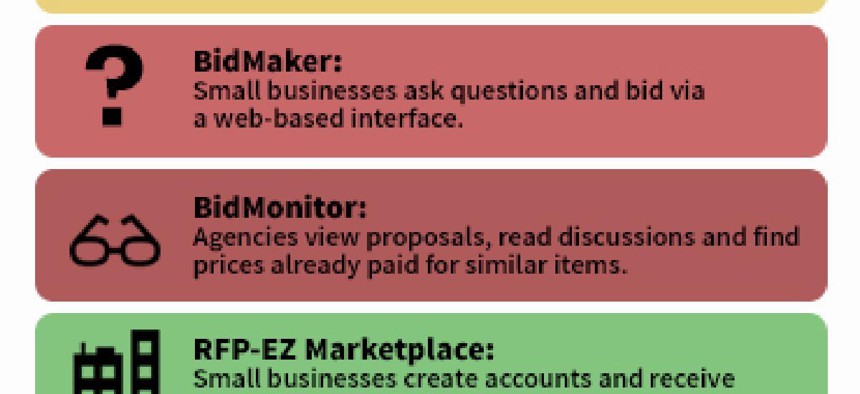New challenges face the new Presidential Innovation Fellows

A new group of private-sector leading lights has been assembled to try to outdo last year's class.

RFP-EZ, a system to make it easier to receive bids for certain services, was one of the noteable successes of the 2012 Presidential Innovation Fellows program. Launched in January, the system has already slashed bid prices and drawn hundreds of new businesses into federal contracting.
The White House's Presidential Innovation Fellows program has deployed 43 new recruits from around the country to serve 6- to 12-month tours of duty building on the program's first-year successes in 2012.
These private-sector imports will work directly with top government innovators to solve government-specific problems such as saving taxpayer dollars, spurring job creation and designing solutions that could help save lives during disasters.
Last year's initial class of 18 fellows experienced several major successes in tackling five inaugural projects, including RFP-EZ, a system created by one of last year's teams that makes it easier for the government to seek bids on certain IT services. The program attracted 270 new businesses to federal IT procurement and slashed bid prices by 30 percent compared to FedBizOpps, the government's standard procurement vehicle.
This year's PIF program is a major expansion over last year's effort, according to a White House blog post authored by Jennifer Pahlka and Dan Tangherlini, deputy federal CTO for Government Innovation and acting administrator for the General Services Administration, respectively. The White House Office of Science and Technology Policy and Office of Management and Budget have partnered with GSA for the program's second round, hoping to ensure that fellow-driven innovations can be better distributed by GSA to myriad other federal agencies.
"Through this new partnership with GSA, which already works with every agency in the Federal Government, the prototype solutions that PIFs build will spread more efficiently throughout Government, enabling the program's positive outcomes to reach more people more quickly," Pahlka and Tangherlini wrote.
The expansion is also reflected in the increased number of projects fellows will undertake.
Some will work on second phases on last year's projects: RFPEZ, Blue Button, Open Data and MyUSA. Others will focus on the following all-new efforts: Disaster Response & Recovery, Cyber-Physical Systems, MyData Initiatives, Innovation Toolkit, 21st Century Financial Systems, Development Innovation Ventures and VA Modernization.



